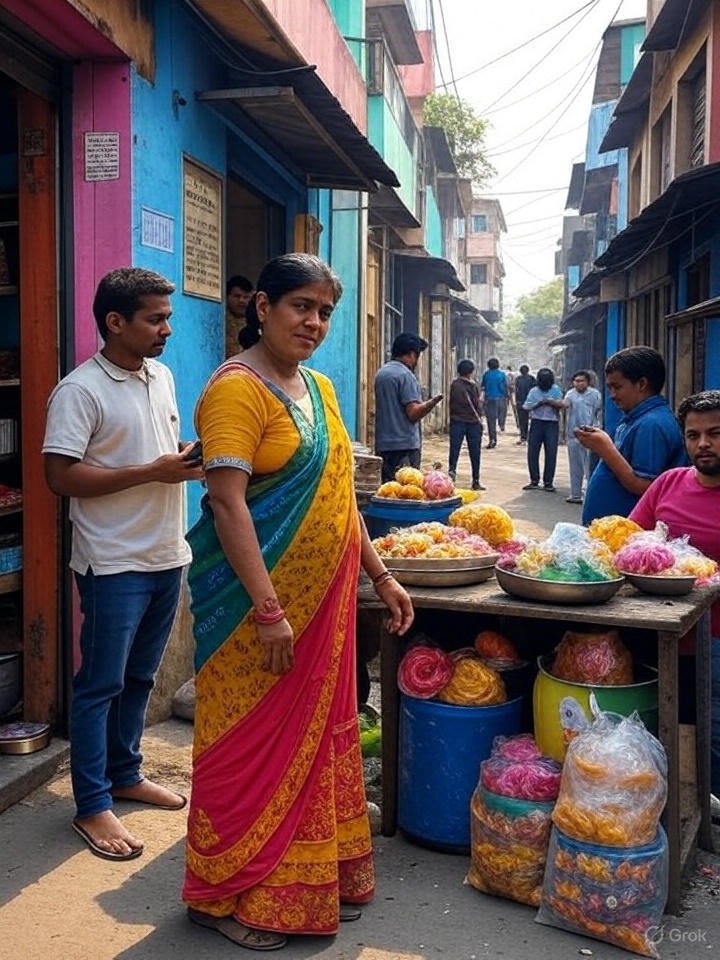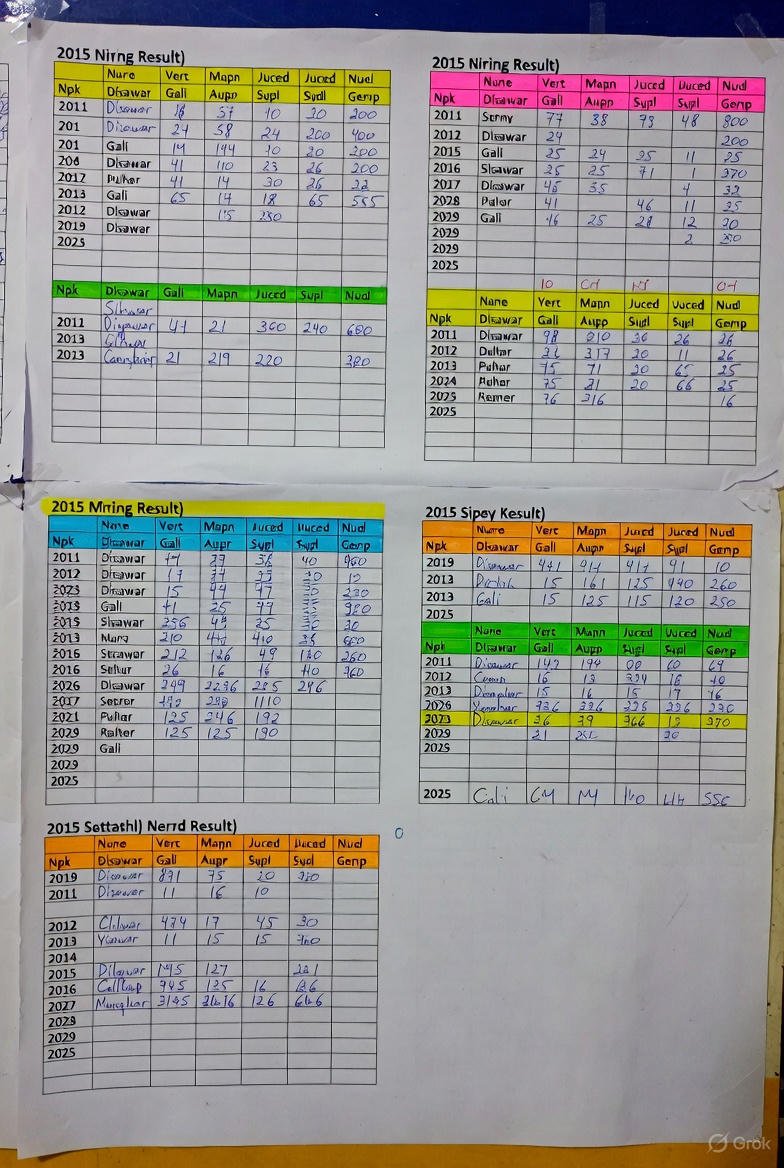
Kolkata Fatafat: History, Impact, and Legal Context
Kolkata Fatafat, also known as Kolkata FF, is a fast-paced, number-based lottery game deeply rooted in West Bengal’s underground gambling culture. Popular for its quick draws and immediate results, it attracts participants seeking instant wins. This article explores the origins, mechanics, cultural significance, and legal framework of Kolkata Fatafat, emphasizing its role in Kolkata’s socioeconomic landscape. Note that Kolkata Fatafat is an illegal activity under Indian law, and this content is for informational purposes only.
Disclaimer
The content on this page is provided for informational and educational purposes only. TricksBiz does not endorse, promote, or encourage participation in Kolkata Fatafat or any form of illegal gambling. Kolkata Fatafat is illegal under the Public Gambling Act of 1867, and engaging in it may result in legal consequences, including fines and imprisonment. For official legal information, refer to the Government of India’s India Code portal: https://www.indiacode.nic.in/bitstream/123456789/2269/1/AAA1867____03.pdf.
Origins of Kolkata Fatafat
Kolkata Fatafat emerged as a localized variant of Satta Matka, a gambling game that gained traction in Mumbai during the 1950s. While Satta Matka focused on cotton rates initially, Kolkata Fatafat adapted the number-based betting model to suit West Bengal’s urban and semi-urban communities. By the late 20th century, it became a daily ritual in Kolkata, particularly in areas with economic challenges, offering a quick, albeit risky, chance at financial gain.
The game’s name, “Fatafat,” reflects its rapid pace, with multiple rounds (known as “Bazis”) held daily, typically eight, from morning to evening. Its simplicity and accessibility made it a cultural phenomenon, especially among working-class individuals.
How Kolkata Fatafat Works
Kolkata Fatafat involves betting on numbers from 0 to 9, often in formats like:
-
Single: A single-digit number (e.g., 5).
-
Jodi: A two-digit number (e.g., 23).
-
Patti: A three-digit number derived from adding numbers (e.g., 128).
Players place bets through local agents or, increasingly, online platforms. Results are announced at fixed times, often displayed on websites like ffkolkata.net or through community networks. Participants analyze “Patti charts” or historical results to spot patterns, though outcomes are random. The game’s fast-paced nature, with draws every 1–2 hours, distinguishes it from other lottery systems.
Cultural and Socioeconomic Significance
Kolkata Fatafat thrives in areas like Kolkata’s slums and working-class neighborhoods, where economic hardship fuels its popularity. Similar to Satta Matka’s ties to Dharavi, Kolkata FF reflects the aspirations of those seeking quick financial relief. It’s a social activity, with players discussing tips and results in local tea stalls or online forums.
However, the game perpetuates cycles of debt and addiction, impacting families and communities. Its prevalence underscores socioeconomic inequalities, as participants often view it as an escape from poverty, despite the risks. The rise of online platforms has made it more accessible, attracting younger players and raising concerns about addiction.
The Role of Digital Platforms
The digital age has transformed Kolkata Fatafat, with websites like ffkolkata.net and kolkataff.cc offering live results, Patti charts, and expert tips. These platforms, similar to Dpboss for Satta Matka, provide real-time updates for all eight Bazis, historical data, and guessing forums. Launched around the early 2000s, they claim to be informational but often face criticism for indirectly promoting gambling.
While these sites enhance convenience, they operate in a legal gray area, complicating enforcement. Users should approach them cautiously, as they may expose participants to unregulated or fraudulent activities.
Legal Status in India
Kolkata Fatafat is illegal under the Public Gambling Act of 1867, which bans public gambling and gaming houses in India. Penalties include fines and imprisonment. Although some states permit regulated lotteries, Kolkata Fatafat’s chance-based nature keeps it prohibited. Enforcement includes periodic raids, but the shift to online platforms poses regulatory challenges. The government views it as a social issue linked to financial ruin and crime.
Societal Impact and Future Outlook
Kolkata Fatafat’s allure lies in its promise of quick riches, but it often leads to financial distress and social stigma. Its popularity in Kolkata highlights urban poverty and limited economic opportunities. Digital platforms have globalized access, raising concerns about youth addiction and unregulated gambling.
Stricter digital regulations may limit platforms like ffkolkata.net, but the game’s cultural roots suggest persistence. Education, awareness, and economic development could reduce its appeal over time.
Conclusion
Kolkata Fatafat, with its rapid draws and cultural significance, mirrors the complexities of India’s informal economies. From its origins as a Satta Matka variant to its modern digital presence, it reflects both hope and risk for participants. While historically fascinating, its illegal status underscores the need for caution. TricksBiz encourages readers to explore its cultural context responsibly and avoid participation in illegal activities.
Frequently Asked Questions (FAQs) About Kolkata Fatafat
1. What is Kolkata Fatafat?
Answer: Kolkata Fatafat, also known as Kolkata FF, is a number-based lottery game popular in West Bengal, India. It involves betting on random numbers drawn multiple times daily, rooted in Satta Matka. Despite its popularity, it is illegal under the Public Gambling Act of 1867.
2. How did Kolkata Fatafat originate?
Answer: Kolkata Fatafat emerged as a localized version of Satta Matka in the late 20th century in Kolkata. It adapted the number-based betting model to suit West Bengal’s communities, becoming a daily activity for many seeking quick financial gains.
3. How does Kolkata Fatafat work?
Answer: Players bet on numbers (single, Jodi/pair, or Patti/three-digit) through local agents or online platforms. Results are announced in eight daily rounds (Bazis), with outcomes displayed on sites like ffkolkata.net. The game relies on chance, though players analyze Patti charts for patterns.
4. Why is Kolkata Fatafat popular in West Bengal?
Answer: Kolkata Fatafat’s fast-paced draws and potential for quick wins attract players, especially in economically challenged areas like Kolkata’s slums. Its cultural significance lies in offering hope for financial relief, despite the risks of debt and addiction.
5. What role do digital platforms play in Kolkata Fatafat?
Answer: Platforms like ffkolkata.net and kolkataff.cc provide live results, Patti charts, and guessing tips for Kolkata Fatafat. Launched in the early 2000s, these sites enhance accessibility but operate in a legal gray area, raising concerns about unregulated gambling.
6. Is Kolkata Fatafat legal in India?
Answer: No, Kolkata Fatafat is illegal under the Public Gambling Act of 1867, which prohibits public gambling. Penalties include fines and imprisonment. Enforcement varies, but online platforms complicate regulation. See https://www.indiacode.nic.in for details.
7. What are the societal impacts of Kolkata Fatafat?
Answer: Kolkata Fatafat offers the allure of instant riches but often leads to financial distress, addiction, and social stigma. It highlights socioeconomic inequalities in Kolkata, where poverty drives participation in this illegal game.
8. What are the risks of participating in Kolkata Fatafat?
Answer: Risks include financial loss, addiction, and legal consequences due to its illegal status. Online platforms may expose users to fraud, and the game can perpetuate debt cycles, especially in vulnerable communities.
9. How does the government regulate Kolkata Fatafat?
Answer: The Indian government regulates Kolkata Fatafat under the Public Gambling Act of 1867, with periodic raids targeting local agents. However, online platforms pose enforcement challenges, as they operate discreetly.
10. What is the future outlook for Kolkata Fatafat?
Answer: Stricter digital regulations may limit platforms like ffkolkata.net, but Kolkata Fatafat’s cultural roots suggest it will persist. Education and economic opportunities could reduce its appeal, though complete eradication is unlikely.












